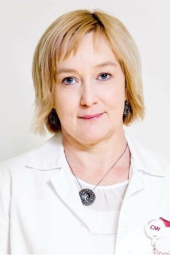The haemodialysis and nephrology departments of the North Estonia Medical Centre were established in 2002 and have expanded into a nephrology centre with several dialysis providers.
The Medical Centre’s Nephrology Centre includes
- nephrology department
- haemodialysis department
- nephrology polyclinic
The haemodialysis wards are located in Mustamäe district, in the city centre Foorum centre (DialüüsiFoorum), the Hiiu block and in Keila city.
We treat patients by appointment and on an emergency basis. The centre staffs four nephrologists.
The Nephrology Department has 17 beds, of which five are for monitoring and treating intensive care patients. We treat patients with primary kidney diseases as well as those with kidney damage from other conditions. We also perform kidney placement therapy, haemodialysis, peritoneal dialysis and treat and monitor kidney transplant patients.
Thanks to the fact that all specialities are represented at North Estonia Medical Centre, we take a comprehensive approach to treatment, which is important in treating many patients and diseases. Often kidney damage is related to other conditions, and chronic kidney patients and chronic patients undergoing kidney replacement treatment often have damage to other organ systems.
The Nephrology Centre follows international treatment and diagnostic guidelines. The centre utilizes fully state of the art diagnostics and treatment methods.
Good conditions for patient care
The number of haemodialysis patients has increased year on year. “Thanks to the haemodialysis facilities at Foorum in the city centre, the Hiiu location in Tallinn and in Keila city, haemodialysis treatment’s availability and conditions for patients have improved significantly. The haemodialysis department in the Mustamäe block has eight places for patients in more severe conditions as well as for people who live in the vicinity of the Mustamäe location. The city centre haemodialysis facility has six places, Hiiu has six as well, and Keila has four places for patients in stable condition. The Hiiu dialysis facility can also perform dialysis for aftercare clinic patients.
Additionally, patients are given peritoneal dialysis training and care and automated peritoneal dialysis training, to allow them to administer the treatment themselves at home.
In November 2013, an apheresis ward opened, where therapeutic plasma transfusions and immunoapheresis procedures can be performed – often these are necessary for treating diseases with various immunogeneses and sometimes also for kidney transplant patients. The Nephrology centre offers this therapeutic service to patients of other Medical Centre patients as well as, when necessary, to patients outside the hospital. The Nephrology Polyclinic offers outpatient nephrology appointments every weekday.
Cooperation projects
The Nephrology Centre works closely with other hospitals, professional associations and patient associations. At Tartu University Hospital, cooperation takes place in studying epidemiology of kidney replacement treatment patients and Dr. Kadri Lilienthal leads cooperation with the Estonian Genome Centre. Dr. Merike Lumas defended her doctorate at the Nephrology Centre – under her tutelage, active research is under way with Tallinn University of Technology for monitoring and improving the quality of haemodialysis. The doctors of the Nephrology Centre are members of the Estonian Society of Nephrology and the worldwide professional society and regularly attend international conferences and seminars. They have received experience in American and European hospitals.
Useful links
Estonian Society of Nephrology www.nefro.ee/eng
EDTA/ERA http://www.era-edta.org/
ISN http://www.theisn.org/
ESOT http://www.esot.org/
Estonian Genome Centre www.geenivaramu.ee/en




